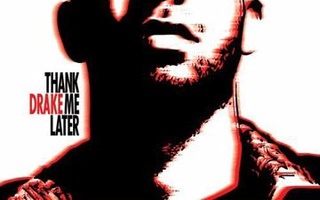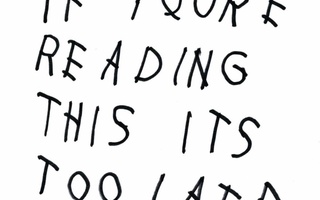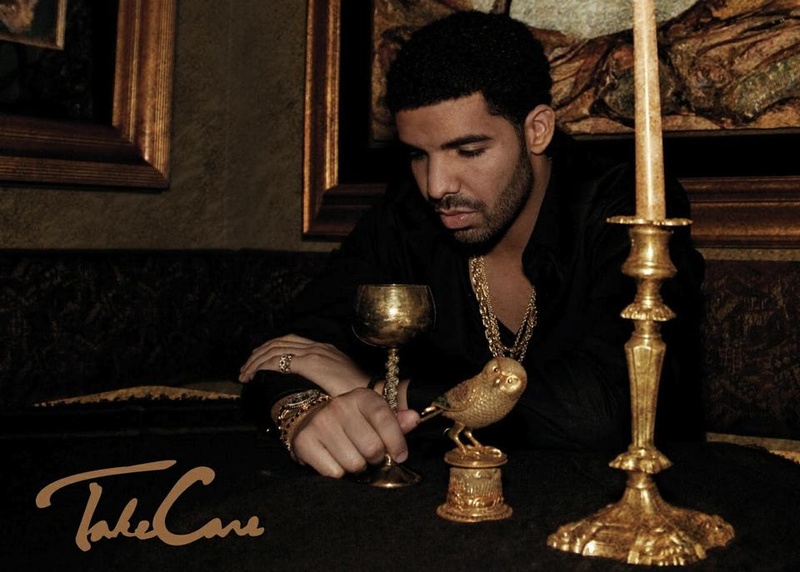As the newest star on the rap scene, Canadian rapper and hip-hop artist Drake is on top of the world. Yet Drake’s sophomore album is not boastful; “Take Care” is a contemplative collection that, surprisingly, conveys its wisdom and insight more through the subtleties of Drake’s language than through its production. It’s an incredibly personal album, and many tracks are carried by recordings of phone conversations and plainspoken rap rather than by beats alone. For a genre that is known for its obsession with wealth, women, and power, it’s refreshing and exciting to see an artist approach it with the confidence and maturity that Drake delivers in his self-aware and stylish manner.
His songs take an introspective approach to deconstructing his celebrity, and the way he presents this dilemma simultaneously sets him apart as a rapper and reinforces his place as a top-tier artist. On single “Headlines” he says, “Money over everything, money on my mind,” seemingly falling into line with other rappers, but in a turn he follows up with, “Then she wanna ask when it got so empty / Tell her I apologize, it happened over time.” The lyrics are not complex or difficult to grasp, and thus it’s easier to understand the emotions that form this more complex persona. We don’t get a two-dimensional rap star, we get a vulnerable, intelligent man conflicted because he is perceived as nothing more than his superficial public persona. His understated way of showing the flaws in glamour, like when he says, “I might be too strung out on compliments / Overdosed on confidence,” belie a skewering self-awareness absent from most. Instead of hiding the importance of his lyrics behind complex stylized delivery, his candor makes his verses that much more direct. He lets the words speak for themselves, allowing the grandeur of his beats to emphasize the straightforward raps he constructs. He creates a portrait of a self-destructive lifestyle that makes him seem both seriously flawed and incredibly powerful at the same time.
However, for all its strengths, the album does have a tendency to fall into some of the familiar and almost tired tropes of rap, at times even his more introspective verses seem superficial rather than profound. Songs like “HYFR” and “Practice” perfectly embody this fault. While the other songs deal with issues of love and relationships in an honest and realistic way, “HYFR” is a generic rap song about nothing but having sex and saying “Hell yeah!” and the same holds true for “Practice.” The few superficial and misogynist songs on “Take Care” are oddly incongruous. They act as deadweight that obscures Drake’s self-reflexivity. It can be distracting at times to hear lyrics like “live a little, ’cause niggers die a lot,” followed up by lines like “if you ask me what I care about: / Rap and bitches” or “come on honey, back that ass up.”
“Doing it Wrong,” the twelfth track on the album, succeeds because Drake’s lyrics take precedence over his delivery and thus showcase Drake’s ability as a songwriter. The simple repeating beat doesn’t eclipse the lyrics, and instead creates a stark stage for Drake’s solemn song. It’s heavy with melancholy, and lets Drake’s heartfelt frankness create one of the most emotionally engrossing rap ballads of the album. It’s only when he lets his guard down and allows the rap to take pride of place over the music does the album demonstrate Drake’s maturity and his impressive ability. “Take Care” illustrates the potential Drake has to be a lasting figure in the rap world. Let’s just hope he realizes he doesn’t have to act like the other rappers to sell albums.
Read more in Arts
The Airborne Toxic Event’s Passionate ShowRecommended Articles
-
 Drake Finds an Atypical Place in Rap World
Drake Finds an Atypical Place in Rap World -
The Human ConnectionThere is no excuse for not acknowledging those who have been significant in our lives and for not thanking those who have helped us along the way.
-
Drake Opens Up and Gets Down“Nothing Was The Same” is a raw portrayal of Drake he’s never shown before, despite the obnoxious insertion of a few crowd-pleasing hits. Drake’s never been this honest, and frankly, it’s refreshing. The rapper is finally rapping on topics other than being a rapper.
-
 'If You're Reading This It's Too Late' A Missive From On High
'If You're Reading This It's Too Late' A Missive From On High -
'Tell Your Friends' Uninspired Drake Drama"Tell Your Friends" is imploringly emotional; addressed to an unnamed love interest, the track begs her to recognize his vulnerability and authenticity.














